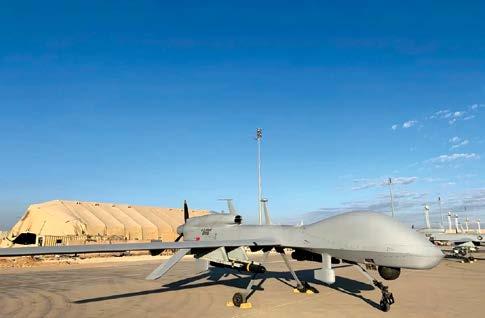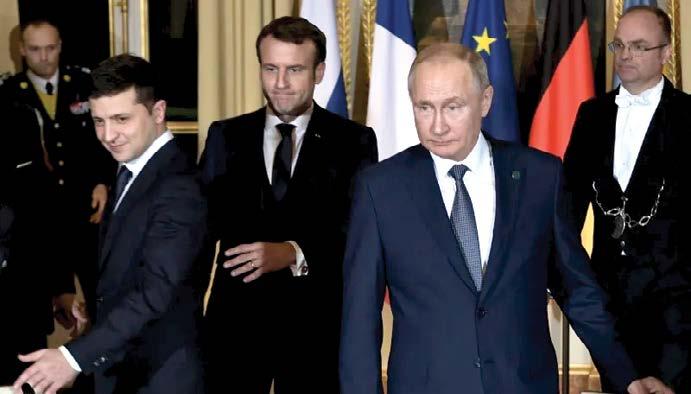Raksha Anirveda
Israel Diary
Can Israel Export Main Battle Tanks and Advanced Armoured Personnel Carriers to Gulf States? Alarmed with the changing dynamics in global order and ever increasing Iranian threat that may soon control the nuclear trigger, Gulf States are engaged in an effort to buy very advanced systems to defend themselves along with establishing new defence relationship with Israel. For Israel and its defence industry, the opening of new markets is an opportunity not to be missed By ARIE EGOZI
M
ajor international events that occur almost simultaneously can send shockwaves around the globe. This is exactly what is happening at present - the Russian invasion of Ukraine, the critical phases of negotiations about a new nuclear agreement with Iran, The US withdrawal from the Gulf region, bring the shockwaves to new heights.
Merkava Israeli Tank
80
www.raksha-anirveda.com
“There has been a dramatic change in the Gulf region, and that is an understatement. What looked like science fiction a few months ago is now a reality,” a very senior Israeli defence analyst told Raksha Anirveda on condition of anonymity. He added that these countries with Sunni governments and majorities understand that cooperating with Israel is their insurance policy against the evil Ayatollahs in Tehran that will soon control the nuclear trigger. Former head of the Israeli National Security Council, Major General (ret.) Giora Eiland told Raksha Anirveda that what until some months ago looked not connected to reality is now very real. “I think that the UAE and Bahrain should ask Israel to sell them advanced weapon systems, not necessarily tanks – they should go for Israeli ground- ground missiles and the best in the world anti-tank missiles.” Eiland added that there are signs that Saudi Arabia, yet to established relations with Israel is “in the loop” after being attacked many times by the Houthis, Iran’s proxies operation in Yemen. The fast developments have not surprised Prof. Uzi Rabi, a senior Israeli expert on developments in the Middle East and the Gulf. Rabi said that a good example is Qatar that has no formal relations with Israel and “in spite of this, its leadership understands the critical need to be a de facto partner in the new security arrangement in the region with an eye on Iran that according to all signs will soon have nuclear weapons.” “They are not part of any formal security agreement but understand the need to be fully coordinated with these new agreements,” the Israeli analyst said. The fast developing defence relations between Israel, the UAE and Bahrain and other Gulf countries and the disappointment from the US policy in the region, open new

















